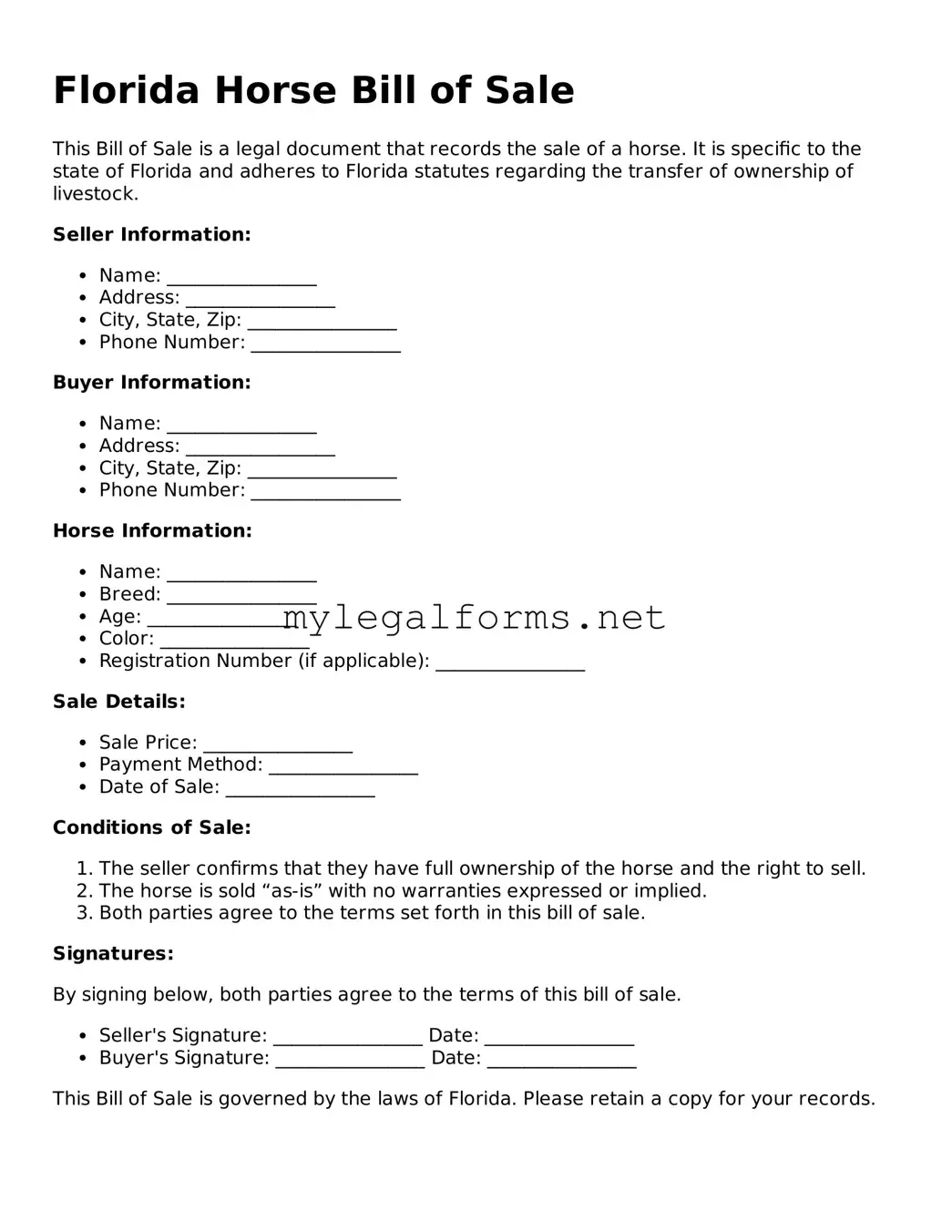Horse Bill of Sale Document for Florida State
The Florida Horse Bill of Sale is a legal document that serves as proof of the sale and transfer of ownership of a horse in Florida. This form outlines essential details such as the buyer and seller's information, a description of the horse, and the sale price. Understanding this form is crucial for both buyers and sellers to ensure a smooth transaction and protect their rights.
Launch Horse Bill of Sale Editor

Horse Bill of Sale Document for Florida State
Launch Horse Bill of Sale Editor

Launch Horse Bill of Sale Editor
or
⇓ PDF Form
Complete the form at your pace — fast
Finish your Horse Bill of Sale online and download the final version.